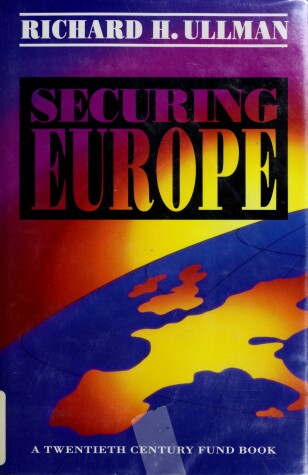What should be the security arrangements for the new Europe of the 1990s, now that the world is no longer afraid of a significant "hot war" beginning there? Who needs to be secure against what kinds of threats? What roles will be played by the United States and the Soviet Union, when the latter is itself in political upheaval? What place will nuclear weapons occupy--not only the weapons of the superpowers but those of the two European nuclear "middle powers," the United Kingdom and France? And how will the task of making Europe secure be affected by the processes of economic integration scheduled to reach a new level in 1992? In a penetrating essay on these issues, Richard H. Ullman maintains that the era Europe is now entering will be qualitatively different from any it has known before. Questioning those who believe that future European international politics will be reminiscent of the turbulent decades before the two World Wars, he shows how and why tomorrow's patterns will radically depart from yesterday's. Some experts argue that only the bipolar structure of postwar Europe has prevented the hyper-nationalism and shifting alignments that led to earlier wars, but Ullman demonstrates fundamental differences--extending beyond the structural--between present-day Europe and the region as it was before World War II. The revolutionary events of 1989 and 1990 have left Germany and the Soviet Union with drastically changed stakes in Eastern Europe. No longer is there a German state which seeks to revise the European status quo. No longer does the Soviet regime feel that its legitimacy at home is crucially tied to the legitimacy of the regimes it installed in Eastern Europe. Both Bonn and Moscow now ask the same thing of the states that lie between them: that no threats against them should originate there. Ullman urges the creation of a new pan-European security organization to verify the absence of these and other threats. But he concludes that even without such an institution, violent conflicts will be confined to the point where they will be very unlikely to escalate into war among the major European powers.
- ISBN10 0691078912
- ISBN13 9780691078915
- Publish Date 21 April 1991
- Publish Status Out of Print
- Out of Print 19 March 2021
- Publish Country US
- Imprint Princeton University Press
- Format Hardcover
- Pages 200
- Language English
- URL https://press.princeton.edu/titles/4748.html
